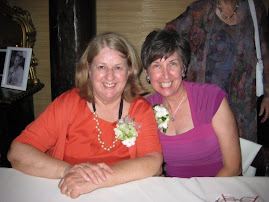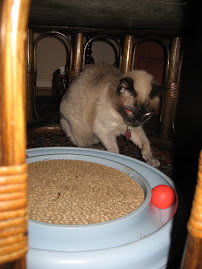
When I think back upon my earliest years growing up in the small town of Shepherdstown, West Virginia, my most vivid memories are of walking with one of my sisters or my brother the three blocks to the town library. In the early fifties, parents could allow their children to walk unaccompanied without fear of abduction or another equally horrendous fear of parents today. I walked freely, carrying my borrowed treasures under my arm, taking in the happy sounds of the rippling brook that ran parallel to King Street, and looking forward to the new treasures I was sure to find in my beloved library.
The library in Shepherdstown was located literally in the center of the small town with a population of just about one thousand people. Located at the intersection of the main street, German Street, so named for the original German settlers, and King Street, the library was directly across from the entrance to the small college in town, and sat right in the middle of King Street, so that all traffic had to go around the library, creating a miniature traffic circle, with the library in the middle of the circle. In my child’s eyes, the library had to be the most important building in town; otherwise, why would it occupy this most central spot? Upon entering what looked like a two story house, I experienced the feeling of being welcomed into the living room of a kind, generous neighbor whose doors were always open and who was willing to share of her riches with all who entered.
This combined anticipation of adventure and discovery along with the very real sense of comfort and safety that I experienced inside the rooms of the library are the most likely source of my life-long love affair with reading. Books were my magic carpet. Through the avenues of hard-bound volumes of sheets of paper covered with words, sentences, poems and stories, I was able to venture beyond the borders of life as I knew it into the lives of people and places that inspired a great sense of curiosity and ambition that I may never have known otherwise.
I still own a copy of my all-time favorite children’s book, Madeline. The opening lines of the story, “In an old house in Paris, all covered with vines, lived twelve little girls, in two straight lines,” along with the picture of those twelve little beds in the orphanage in Paris are forever engraved on my mind. As I grew older, I was drawn to read biographies. I remember in particular a series of orange hard bound biographies of famous people such as Helen Keller, Abraham Lincoln, Daniel Boone, Davy Crockett, Jane Adams and Marie Curie that made me think that I too could make some great contribution to the world. Then, I discovered the Nancy Drew series, about the strong-willed teenager who allowed me to join her in the world of mystery and intrigue. As a middle schooler and high schooler, my tastes inevitably changed. Does any girl forget her first reading of Gone with the Wind? Or The Diary of Anne Frank? In high school, I remember being one of the few students in my class who was excited to get a new reading assignment in English class. How could reading the story of Hester Prynne in The Scarlet Letter ever be considered as work, I wondered.
Now, four decades later, in my retirement, I am in the position of being able to partake in the sheer luxury of reading whatever and whenever I please. Whether it be sitting on the chaise lounge on my back porch in the summertime listening to the chirping of the birds or the humming of the neighbor’s lawn mower, or curled up in the folds of a warm comforter in winter, reading affords me the opportunity to do two things I love at the same time, i.e., to immerse myself in a great story and to spend quality time with my 17-year-old Siamese cat.. Miss Coco is always right there in my lap, sometimes sitting directly on the pages of my book, or otherwise obstructing the line of vision for reading, requiring frequent cuddling and gentle readjusting of the seating arrangement in order for me to get to the end of an episode or chapter.
In the past two years I have read dozens of books, mostly fiction. One of the many goals I set for myself in my retirement was to catch up on all the novels and movies that I had not had time to read or see while I was working full-time in a profession that demanded nearly as much time outside of the regular work-day as during the work-day. Why am I so passionate about my books? Is it the pure distraction and escapist pleasure derived from engaging with real or fictional characters who find themselves in any of a myriad of true to life conflicts or moral dilemmas which probe the depths of human nature? Or is it because the act of reading, and really engaging with a book, keeps the mind active, one of the most frequently cited secrets to fighting aging? It’s probably both, and then, the icing on the cake is the opportunity to follow up what some call a solitary pastime with a group of like-minded folks, in my book clubs, with lively discussions and sharing of reactions to the reading, therefore furthering the insights into the book and simultaneously, forging new friendships.
I realize that everyone is not as enamored of reading as I am, but most of us have a secret passion that had to be set aside during the thirty or more years of working to earn a living. What was your passion? Have you taken advantage of this phase of your life to pursue a long-repressed pursuit? Or have you ventured out into new areas of self-discovery that you didn’t even know existed since your retirement? In either case, isn’t it great to have lived long enough to pursue these self-indulgent pleasures or equally creative new opportunities for self-discovery?




















